African American Studies
| Slave Resistance and the Making of Abolition | Based on the book The Slave’s Cause: A History of Abolition (Yale University Press, 2016), this talk argues that slave resistance rather than bourgeois liberalism lay at the heart of the abolition of slavery. Abolition was defined in large part by the fugitive slaves and slave rebels who inspired abolitionists. Antislavery politicians and lawyers took up the slave's cause and made human rights a defining aspect of American democracy. |
|
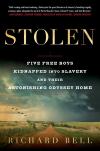
|
Stolen: Five Free Boys Kidnapped into Slavery and their Astonishing Odyssey Home | In this talk, Richard Bell will discuss his new book, Stolen, a gripping and true story about five young, free black boys who were kidnapped in the North in 1825 and smuggled into slavery in the Deep South—and their daring attempt to escape and bring their captors to justice. |
| Traumas and Triumphs: A Roundtable on the History of Black Childhood | Join us for a roundtable discussion on the history of Black childhood. Moderated by Nazera Wright (University of Kentucky), this program brings together Kabria Baumgartner (Northeastern University) and Crystal Webster (University of British Columbia), who share their own research on the subject. Participants will discuss the threats and challenges facing African American children in the nineteenth century, as well as the ways in which they wrote, organized, and forged their own individual and collective identities. |
|
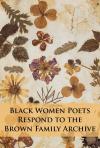
|
Black Women Poets Respond to the Brown Family Archive | Join us as Worcester poets share their responses inspired by material from the Brown Family Collections, one of the earliest and largest intact nineteenth-century Black family’s libraries in America. The collections center around William and Martha Ann Brown, who were married in Worcester in 1850, and their son, Charles F. Brown. |
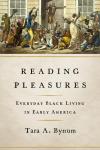
|
Reading Pleasures | Join us as literary historian Tara A. Bynum discusses her new book Reading Pleasures: Everyday Black Living in Early America. In the book, Bynum tells the compelling stories of four early American writers who expressed feeling good despite living while enslaved or only nominally free. The poet Phillis Wheatley delights in writing letters to a friend. Ministers John Marrant and James Albert Ukawsaw Gronniosaw memorialize their love for God. |
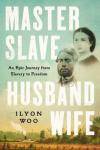
|
Behind the Scenes of Master Slave Husband Wife | Master Slave Husband Wife tells the remarkable true story of Ellen and William Craft, who escaped slavery through daring, determination, and disguise, with Ellen passing as a wealthy, disabled White man and William posing as “his” slave. The Crafts’ own 1860 narrative, Running a Thousand Miles for Freedom, provides a powerful first-hand account of this extraordinary act of mutual self-emancipation. Yet, many mysteries remain that the Crafts would not or could not discuss. |
| ‘Slavery in the Bowels of a free & Christian Country:’ People of Color and the Struggle for Freedom in Revolutionary Massachusetts” | Co-Sponsored by Africana Studies at the College of the Holy Cross |
|
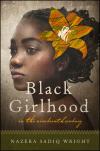
|
Black Girlhood in the Nineteenth Century | Scholars have explored how nineteenth-century scrapbooks and friendship albums circulated among free black women in the North to showcase their middle-class status and close networks. However, little is known about how black girls participated in this sentimental practice. In this lecture, Nazera Sadiq Wright will discuss how histories of black girlhood are often “buried” in literary genres less likely to be studied. Recovering these histories involves using types of literature that move beyond the bound book. |
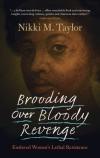
|
Brooding over Bloody Revenge | From the colonial through the antebellum era, enslaved women in the US used lethal force as the ultimate form of resistance. By amplifying their voices and experiences, Brooding Over Bloody Revenge (Cambridge University Press, 2023) strongly challenges assumptions that enslaved women only participated in covert, non-violent forms of resistance, when in fact they consistently seized justice for themselves and organized toward revolt. Nikki M. Taylor reveals how women killed for deeply personal instances of injustice committed by their owners. |
| Black Girlhood in the Nineteenth Century |